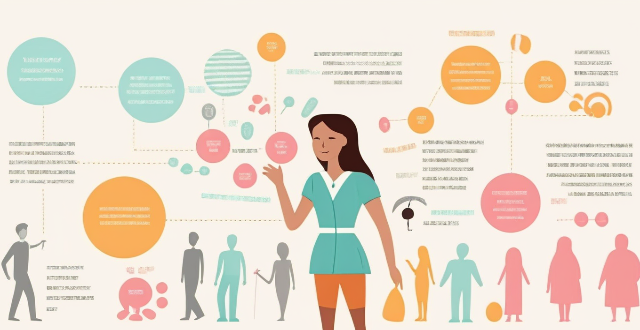Climate justice is a concept that aims to ensure fair treatment for all individuals, communities, and countries in the face of climate change. It involves the equitable distribution of benefits and burdens associated with both climate change mitigation efforts and adaptation strategies. Key aspects of climate justice include equity, recognition, and procedural fairness. Climate justice is important because it helps mitigate unequal impacts, promotes sustainable development, enhances participation and accountability, and fosters global cooperation. In conclusion, climate justice is not merely a moral imperative but also a practical necessity for crafting effective and enduring solutions to the challenges posed by climate change.

Climate Justice: An Insightful Perspective
What is Climate Justice?
Climate justice is a concept that seeks to ensure fair treatment for all individuals, communities, and countries in the face of climate change. It involves the equitable distribution of benefits and burdens associated with both climate change mitigation efforts and adaptation strategies.
Key Aspects of Climate Justice Include:
- Equity: Ensuring that those who are most vulnerable to the impacts of climate change, often the poorest and most marginalized communities, receive priority in efforts to address these challenges.
- Recognition: Acknowledging the diversity of experiences and perspectives related to climate change, including the unique impacts faced by Indigenous peoples and local communities.
- Procedural Fairness: Ensuring that decision-making processes around climate action are transparent, inclusive, and participatory, allowing for the voices of affected communities to be heard and considered.
Why is Climate Justice Important?
Climate justice plays a pivotal role in our global response to climate change for several compelling reasons:
Mitigating Unequal Impacts:
- Vulnerable Populations: Climate change disproportionately affects those who have contributed the least to the problem, such as low-income communities, children, and future generations. Climate justice aims to protect these groups from bearing an unfair share of the consequences.
- Geographical Disparities: Some regions are more susceptible to climate change impacts due to geographical, economic, or social factors. Climate justice emphasizes the need for differentiated responsibilities and support based on these disparities.
Promoting Sustainable Development:
- Economic Growth: By ensuring that climate policies do not hinder economic development, especially in developing countries, climate justice promotes pathways to sustainable growth.
- Social Inclusion: Integrating climate action with social policy can lead to more inclusive societies where everyone has access to basic services and opportunities.
Enhancing Participation and Accountability:
- Community Engagement: Climate justice encourages community involvement in shaping climate policies, leading to solutions that are more effective and locally relevant.
- Transparency: By advocating for open decision-making processes, climate justice helps hold governments and other actors accountable for their actions and commitments.
Fostering Global Cooperation:
- International Agreements: Climate justice is essential for achieving broad-based support for international agreements like the Paris Agreement, which require cooperation from diverse nations with varying interests and capabilities.
- Sharing Best Practices: Promoting the exchange of knowledge and practices across borders can help countries learn from each other's successes and failures in addressing climate change.
In conclusion, climate justice is not merely a moral imperative but also a practical necessity for crafting effective and enduring solutions to the challenges posed by climate change. It ensures that the efforts to combat climate change are inclusive, equitable, and respectful of human rights, thereby increasing the likelihood of success in a world where every individual's well-being is inextricably linked to that of others.